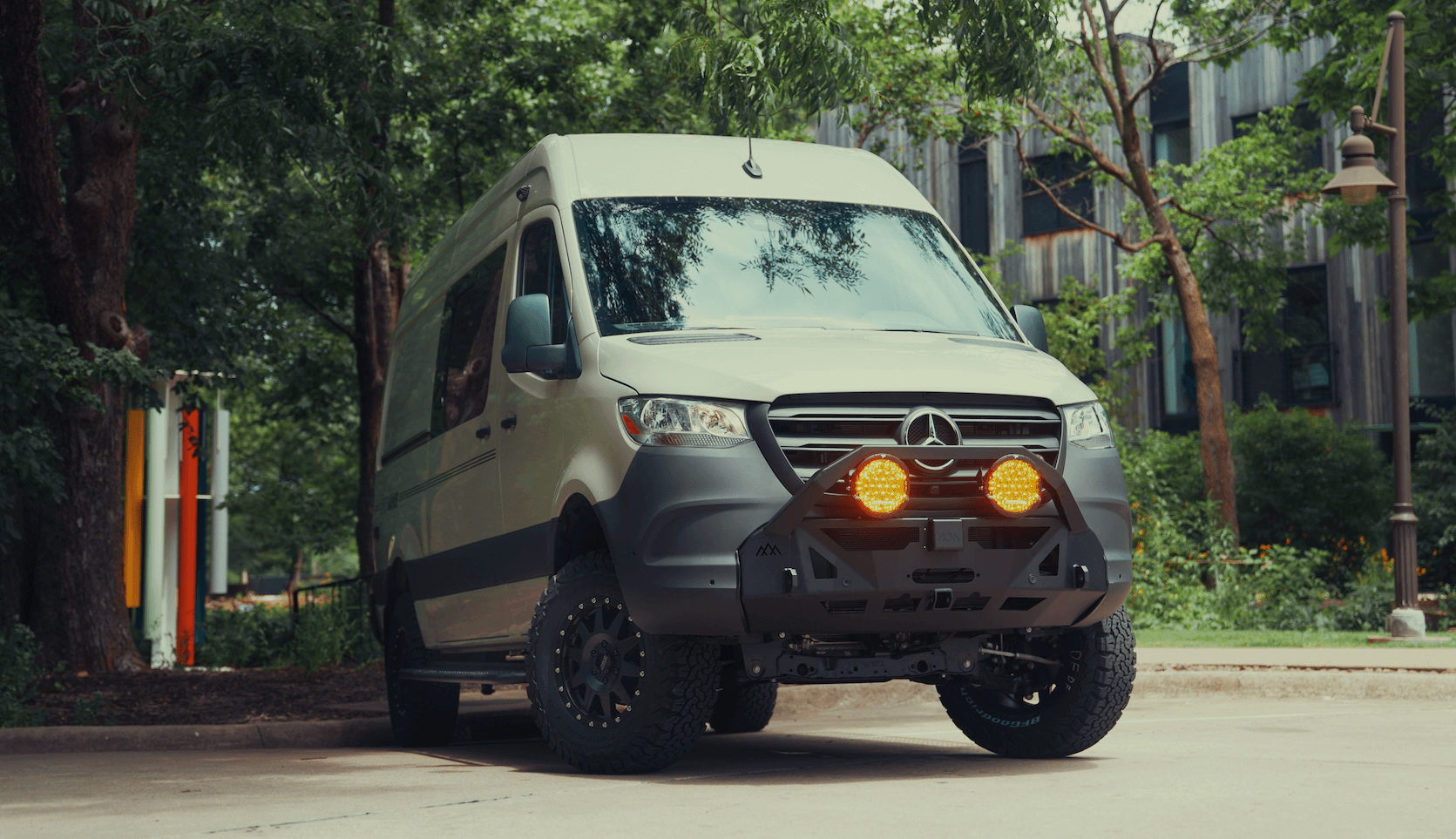Recreational Vans

An Electric Sprinter camper is a battery electric van platform configured for travel and living, with every decision driven by energy use and weight. Unlike combustion models, you plan days around charging cadence, weather, terrain, and speed. The platform can support a compact galley, sleeping for two, climate control, and storage, but the recipe must protect payload and aerodynamics. Efficient appliances, thoughtful insulation, and smart layouts matter more than lavish add ons. Done right, the result is quiet, low vibration travel and clean power at camp.
Modern electric Sprinter platforms pair a high voltage battery with a single motor and regenerative braking. DC fast charging typically peaks near highway rest stop dwell times, while AC charging at home or camp refills overnight. The high voltage system feeds a DC to DC converter that supplies the low voltage house circuits. Builders often retain a small lithium house bank to buffer loads and provide clean power isolation. Because the traction battery is a shared resource, the entire living system should be frugal and predictable.
Real world range depends on speed, elevation, temperature, payload, and roof profile. Highway speeds consume the most energy, so planning trips around 65 to 70 mph can unlock meaningful distance. Roof racks, tall boxes, and aggressive tires increase drag and rolling resistance, which shortens range. Cold weather raises energy demand for cabin heat and battery conditioning, so preconditioning while plugged in is a useful habit. Software route planners that understand charging networks help you aim for reliable stops with amenities that match your schedule.
DC fast charging works best when you arrive warm and below mid pack state of charge, then unplug around the taper point. Many drivers target a window from roughly 10 to 80 percent to keep average speed high across the day. Preconditioning the battery before arrival can improve charge rates if the vehicle supports it. Use charging breaks to prep meals, organize gear, or stretch so the stop adds value to the day rather than feeling like a delay.
Weight management is the golden rule. Heavy materials erode payload and range, and they degrade ride and braking. Choose honeycomb composites, thin wall aluminum, and lightweight plywood for furniture. Keep the kitchen compact, use a shallow water tank sized to your routes, and place dense items low and centered for stability. Avoid complex slide systems unless they solve a clear storage problem, and keep tall mass off the roof.
Solar on a van roof usually ranges from about 300 to 600 watts, which can contribute a helpful daily top up. Expect a few kilowatt hours on a good summer day and less in winter or shade. A 12 volt compressor fridge, induction cooktop, efficient vent fan, and LED lighting keep daily consumption predictable. For heat and cooling, a high efficiency heat pump is ideal when available and can be supported by shore power at campgrounds. Insulation strategy should balance conduction, convection, and radiant control, with careful attention to thermal bridges at pillars and window frames.
Comfort focuses on airflow, moisture control, and quiet. Use a roof fan paired with low draw circulation fans to move air without opening too many windows in bad weather. Sound deadening in large panels reduces noise fatigue and improves the sense of refinement at highway speed. Blackout shades and thermal curtains help the HVAC system do less work, which protects range.
A practical power blueprint starts with an energy budget for a normal day. List each device, its draw, and hours of use, then size the house battery and solar accordingly. Add shore power input for campsites and a robust DC to DC charger so you can harvest energy while driving if the platform permits. Keep wiring runs short, fuse each branch properly, and mount components for service access and airflow.
Charging strategy completes the picture. At home, install a Level 2 charger to start trips full and return with a warm battery. On the road, favor large reliable sites with amenities. At camp, shore power lets you cool the cabin, recharge devices, and cook without touching the traction battery. When boondocking, lean on induction short bursts, pre chill the fridge, and prioritize low draw lighting to extend autonomy.
Practical details matter. Choose all season tires with low rolling resistance, maintain proper pressures, and align the van after suspension changes. Keep the roof as clean as possible, route cables tightly to the body, and avoid tall accessories that catch wind. Store only what you use weekly and purge gear that is just in case to keep weight in check. The payoff is a calmer drive, fewer charging stops, and a cabin that feels restful at the end of the day.
OZK Customs builds electric friendly interiors that respect payload and preserve range by design. Our team focuses on light, strong structures, efficient power systems, and charging ready layouts, then tests the result for noise, airflow, and service access. Whether you need a complete custom build or a targeted upfit for insulation, cabinetry, and low voltage power, we tailor the work to your travel style. We are happy to plan shore power inlets, solar arrays, and energy dashboards that make trip planning simple and transparent.
Looking for a path from idea to finished rig without guesswork or delays at the charger. Our shop delivers purpose built Electric Sprinter camper layouts with clean wiring, serviceable components, and durable finishes. Share your route type, climate, and must haves and we will design a calm, efficient space that keeps miles flowing and camp time comfortable.
Strong next steps:
Ready to turn your Electric Sprinter into a capable camper with real world range and comfort? Our team designs weight smart interiors, efficient power systems, and charging ready layouts that work on the road. Tell us how you travel and we will engineer a quiet, durable build that preserves efficiency. Start your custom plan now and secure a build slot.
ADDRESS:
6159 E Huntsville Rd, Fayetteville, AR 72701
PHONE:
(479) 326-9200
EMAIL:
info@ozkvans.com